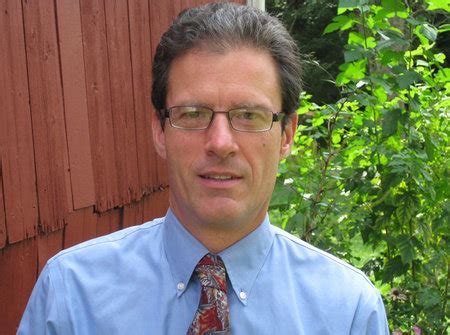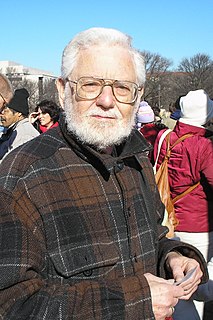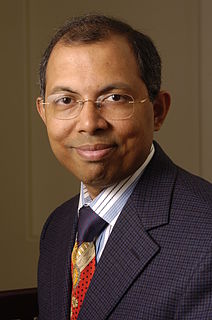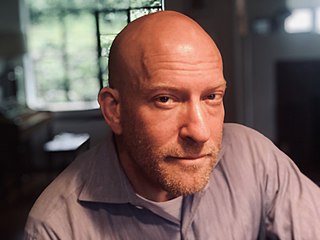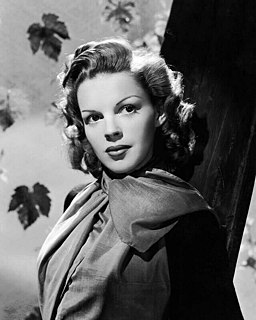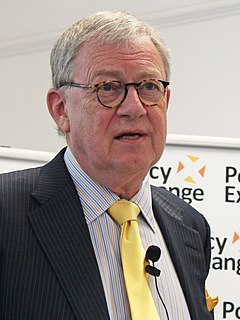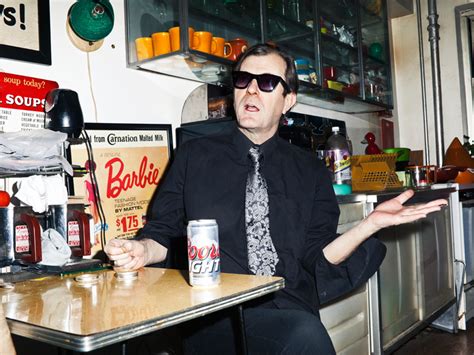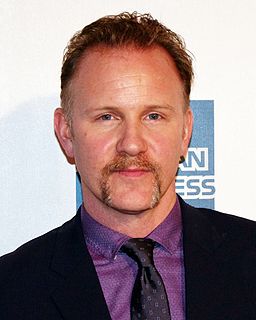Top 1178 Empathy Quotes & Sayings - Page 19
Explore popular Empathy quotes.
Last updated on December 4, 2024.
Objectification is a critical reason why an abuser tends to get worse over time. As his conscience adapts to one level of cruelty-he builds to the next. By depersonalizing his partner, the abuser protects himself from the natural human emotions of guilt and empathy, so that he can sleep at night with a clear conscience. He distances himself so far from her humanity that her feelings no longer count, or simply cease to exist.
Training moments occur when both parents and children do their jobs. The parent's job is to make the rule. The child's job is to break the rule. The parent then corrects and disciplines. The child breaks the rule again, and the parent manages the consequences and empathy that then turn the rule into reality and internal structure for the child.
Our leaders are cruel because only those willing to be inordinately cruel and remorseless can hold positions of leadership in the foreign policy establishment. People capable of expressing a full human measure of compassion and empathy toward faraway powerless strangers do not become president of the United States, or vice president, or secretary of state, or national security adviser or secretary of the treasury. Nor do they want to.
I identify with other women because of my gender, and I identify with other women if they are mothers because I'm a mother, too. It's very simple. It's nothing complicated, it's not rocket science. It's about empathy. It's about understanding that what happens with one person is potentially what happens to you, and seeing yourself in someone else's shoes. Fundamentally, we are all in the same place: we're born, we live, and we're going to die. In between, we'll have joy and we'll have sadness.
Steven Pinker says, the invention of printing and the widespread appearance of fiction -
this taught empathy. If you read a novel, you're in someone else's head, in three, five different people's heads. Suddenly, the principle of "Don't do anything to anyone that you wouldn't want done to you" becomes real in people's minds. That's a fantastic achievement if fiction is indeed partly responsible for it. That's a great thing to be a part of. In the end, then, I don't know if writers have legislated, but they have civilized.
The Treatise of the Three Impostors is a book that enjoyed centuries of notorious nonexistence until (as Voltaire would say) it became necessary to invent it. Georges Minois writes with empathy, erudition, and a novelist's sense of buildup and timing, weaving in the parallel story of Europe's courageous freethinkers. In the face of today's social and even legal pressures against criticizing religion, it is good to see an honorable French tradition asserting itself.
We now know, from the latest research about neurons, that we are hard-wired for empathy. We're hard-wired for cooperation. That is something about what we are as people - what it means to be a human being. And what Barack Obama was addressing was not just race or just the nature of politics. The great speeches address who we are as people, what it means to be a human being.
That is another theme in the book [Dreams from My Father]. How do we exercise more empathy in our public discourse? How do we get the black to see through the eyes of the white? Or the citizen to see through the eyes of the immigrant? Or the straight to see through the eyes of the gay? That has always been a struggle in our politics.
What we're trying to do in conversational intelligence is not only define that trust continuum for people, not only helping them notice, which is so important, what's happening in them and others when distrust lives, but also how to bring people in trust. When they do, what happens, this part of our brain, the prefrontal cortex is loaded with wisdom, integrity, strategy, insights, empathy, foresight. It's beautiful. It's so designed for that, and often it's turned off because people don't have trust with each other.
If you and I are not having a dialogue, when you're having an argument, the reason the argument happen is because we are not listening to each other. Then, the argument comes in, but if we truly listen instead of hearing, argument will not happen. Then, we'll empathize, and then once the empathy kicks in, you will be much more inclining with my viewpoint and I'll be inclining with your viewpoint, and that's what is missing in organizations.
Suppose you read about a pill that you could take once a day to reduce anxiety and increase your contentment. Would you take it? Suppose further that the pill has a great variety of side effects, all of them good: increased self-esteem, empathy, and trust; it even improves memory. Suppose, finally, that the pill is all natural and costs nothing. Now would you take it? The pill exists. It is meditation.
I don't agree with most forms of censorship, and I especially don't agree with the idea that one needs to be from the same cultural, ethnic, or religious background as the subjects they portray in order to be qualified to portray those subjects. I believe that compassion and empathy should cross all of those category barriers, and the conversations art creates can be inflammatory initially, but I think are most often constructive and healing in the long run.
Failure to summon forth the courage to risk a nondogmatic and nonevasive stance on such crucial existential matters can also blur our ethical vision. If our actions in the world are to stem from an encounter with what is central in life, they must be unclouded by either dogma or prevarication. Agnosticism is no excuse for indecision. If anything, it is a catalyst for action; for in shifting concern away from a future life and back to the present, it demands an ethics of empathy rather than a metaphysics of fear and hope.
I lay my head on his chest and listen to his heart beating, solid and sure.....he reads me so well. He's known about my emotional empathy since we were children. Nothing disturbs him...Few can lie to me... I don't know the truth, only that there is a lie. It takes a scrupulously honest man to love me. That's my Sean. We learned to trust each other completely before we were old enough to have learned suspicion.
Of course genes can’t pull the levers of our behavior directly. But they affect the wiring and workings of the brain, and the brain is the seat of our drives, temperaments and patterns of thought. Each of us is dealt a unique hand of tastes and aptitudes, like curiosity, ambition, empathy, a thirst for novelty or for security, a comfort level with the social or the mechanical or the abstract. Some opportunities we come across click with our constitutions and set us along a path in life.
I'm trying to understand how do we tell lies to ourselves to justify what we've done and what are the consequences of those lies? But actually maybe I also recognize that in turning empathy into a practice for many years, by turning, by forcing myself to separate at some level the humanity of a human being from his or her actions and recognizing that sometimes, even the moral aspects of a human being can contribute to immoral behavior.
Dominion does not mean domination. We hold dominion over animals only because of our powerful and ubiquitous intellect. Not because we are morally superior. Not because we have a "right" to exploit those who cannot defend themselves. Let us use our brain to move toward compassion and away from cruelty, to feel empathy rather than cold indifference, to feel animals' pain in our hearts.
The age of warrior kings and of warrior presidents has passed. The nuclear age calls for a different kind of leadership.... a leadership of intellect, judgment, tolerance and rationality, a leadership committed to human values, to world peace, and to the improvement of the human condition. The attributes upon which we must draw are the human attributes of compassion and common sense, of intellect and creative imagination, and of empathy and understanding between cultures.
I'm more attuned than ever to the proliferation of groups that are working for justice and equality. They're all over the country. We want the people who watch "A House Divided" and other stories in our America Divided series to realize that there are structures that reinforce inequality and inequity, and that our job as good people is to work together to dismantle those structures. We're hoping that viewers will see what they have in common with other Americans, have empathy and become more united.
Find that thing you are super passionate about. A lot of founding principles of Facebook are that if people have access to more information and are more connected, it will make the world better; people will have more understanding, more empathy. That’s the guiding principle for me. On hard days, I really just step back, and that’s the thing that keeps me going.
You're part of the human fabric of experience. You don't have to have cancer to write about cancer. You don't have to have somebody close to you die to understand what death is. Definitely, the more you live, the more experiences fall into your spectrum. As a writer, you must have been told: Write about what you know. But Kafka didn't. Gogol didn't. Did Shakespeare write only what he knew? Our own selves are limitless. And our capacity for empathy is giant.
Ultimately, peace is just not about politics. It's about attitudes; about a sense of empathy; about breaking down the divisions that we create for ourselves in our own minds and our own hearts that don't exist in any objective reality, but that we carry with us generation after generation. And I know, because America, we, too, have had to work hard over the decades, slowly, gradually, sometimes painfully, in fits and starts, to keep perfecting our union.
I think it's a very stark marker of what kind of president we have that, from all available evidence, Donald Trump has not read a book, as an adult. This is not someone who sits down in the evening to consider the latest bestseller, let alone Tolstoy - but who is very very active on this medium that requires no discipline and no attention and no empathy. It is all about retweeting praise of oneself or very quickly or poorly considered, ill-typed, misspelled diatribes against other people.
The only time the private parts of someone's life are relevant is when they're affecting public performance. And just because someone is a public person doesn't mean that any part of his or her private life is open to scrutiny. If someone is doing his or her job, you have to have enough empathy to understand that we all have personal problems.
One of the tools I like a lot is the Just Like Me practice. It's one of the empathy practices where we put ourselves in the other's shoes. Rather than get caught up in the difference in the ideologies, we actually come back to the fundamental idea: just like me, this person on the opposite political spectrum wants to be happy, wants to be safe, wants to thrive, wants to be healthy, wants to find peace of mind.
Obama's attitude toward the rule of law is apparent in the words he used to describe what he is looking for in a nominee to replace Justice David Souter. He wants 'someone who understands justice is not just about some abstract legal theory,' he said, but someone who has 'empathy.' In other words, judges should decide cases so that the right people win, not according to the rule of law.
I've always had a really developed sense of justice. As a child, I would rotate my dolls' dresses for fear that they might come alive at midnight and one of them would always have the best dress on. Whatever it was that made me worry about my dolls I suppose has paid off in my career because, really, an actor is all about empathy and imagination. And those are the cornerstones of activism.
We live in a world filled with language. Language imparts identity, meaning, and perspective to our human community. Writers are either polluters or part of the clean-up team. Just as the language of power and greed has the potential to destroy us, the language of reason and empathy has the power to save us. Writers can inspire a kinder, fairer, more beautiful world, or invite selfishness, stereotyping, and violence. Writers can unite people or divide them.
I remember Anthony Perkins saying, "Real is not necessarily interesting." So real is not enough. But what happens as an actor is that you're really trained to listen and to be open and have empathy. It's such a natural consequence that you end up being more political. You can empathize with the mother whose kids are going to be sent to Iraq, or you can emphasize with the mother who is losing their child to a disease. How could you not then be active? So you're automatically drawn to that aspect in the rest of your life.
I think most people who decide to become a musician have to be prepared for some degree of struggle. It makes the art better if you go through some struggles. To be an artist, in any form, you have to develop some sense of compassion and empathy - it's an important quality for everyone to have, on a human level. But I think, as part of our job, you have to be able to do that, so suffering, tends - if you allow it - to let you look on the bright side. It will help with those senses.
The more authentic you become, the more genuine in your expression, particularly regarding personal experiences and even self-doubts, the more people can relate to your expression and the safer it makes them feel to express themselves. That expression, in turn, feeds on the other person's spirit, and genuine creative empathy takes place, producing new insights and learnings and a sense of excitement and adventure that keeps the process going.
One should learn from a book. Books have a lot to teach us. They have a lot of empathy to impart to us, but they should also be fun. This stuff is fun! You shouldn't pick up a book and say, "Oh my god, I'm gonna better myself by reading this." You may better yourself by reading this, but who cares? Just have fun.
The essence of intercultural education is the acquisition of empathy-the ability to see the world as others see it, and to allow for the possibility that others may see something we have failed to see, or may see it more accurately. The simple purpose of the exchange program...is to erode the culturally rooted mistrust that sets nations against one another. The exchange program is not a panacea but an avenue of hope.
Kafka often describes himself as a bloodless figure: a human being who doesn't really participate in the life of his fellow human beings, someone who doesn't actually live in the true sense of the word, but who consists rather of words and literature. In my view, that is, however, only half true. In a roundabout way through literature, which presupposes empathy and exact observation, he immerses himself again in the life of society; in a certain sense he comes back to it.
In order to get inside their skin, I have to identify with them. That includes even the ones who are complete bastards, nasty, twisted, deeply flawed human beings with serious psychological problems. Even them. When I get inside their skin and look out through their eyes, I have to feel a certain - if not sympathy, certainly empathy for them. I have to try to perceive the world as they do, and that creates a certain amount of affection.
A lot of people seem to think that art or photography is about the way things look, or the surface of things. That's not what it's about for me. It's really about relationships and feelings...it's really hard for me to do commercial work because people kind of want me to do a Nan Goldin. They don't understand that it's not about a style or a look or a setup. It's about emotional obsession and empathy.
A human being without the proper empathy or feeling is the same as an android built so as to lack it, either by design or mistake. We mean, basically, someone who does not care about the fate which his fellow living creatures fall victim to; he stands detached, a spectator, acting out by his indifference John Donne's theorem that "No man is an island," but giving that theorem a twist: that which is a mental and a moral island is not a man.
The attempt to be an ideal parent, that is, to behave correctly toward the child, to raise her correctly, not to give to little ortoo much, is in essence an attempt to be the ideal child--well behaved and dutiful--of one's own parents. But as a result of these efforts the needs of the child go unnoticed. I cannot listen to my child with empathy if I am inwardly preoccupied with being a good mother; I cannot be open to what she is telling me.
This act of empathy, that women go through from the time we're little girls - we read all of literature, all of history, it's really about boys, most of it. But I can feel more like Peter Pan than Tinker Bell, or like Wendy. I wanted to be Tom Sawyer, not Becky. And we're so used to that act of empathizing with the protagonist of a male-driven plot. I mean, that's what we've done all our lives. You read history, you read great literature, Shakespeare, it's all fellas, you know?
The Chinese philosopher Chuang-Tzu stated that true empathy requires listening with the whole being: The hearing that is only in the ears is one thing. The hearing of the understanding is another. But the hearing of the spirit is not limited to any one faculty, to the ear, or to the mind. Hence it demands the emptiness of all the faculties. And when the faculties are empty, then the whole being listens. There is then a direct grasp of what is right there before you that can never be heard with the ear or understood with the mind.
For us what we're trying to do is find the right balance of creating a space for emotion that leads to a sense of empathy and solidarity rather than a sense of division. In my most grandiose moments I think of HuffPost as a platform that makes solidarity possible, that really thinking about the emotional content of stories is a way to help people who think, or who have been manipulated to think, that they're interests are opposed to one another, that they actually are aligned in a fundamental way and they're actually in the same boat.
We have a broken system, and we need politicians who are going to fix it. We need someone who's going to govern on behalf of everyone in this country, including immigrants. The fact of the matter is, the candidates need the Latino vote to win. If we feel we're not being represented and if we feel like the candidate is insulting us, ignoring us, and is not leading with fairness and empathy, I think that's going to be reflected in turnout.
Well, one of the things we're supposed to be able to do as playwrights is write from a place of empathy, get into another character's shoes and experience things both mundane and tragic. And people don't - like me right now - people aren't necessarily the most eloquent when trying to express their emotions. I guess I feel as a playwright that those people deserve a voice, too, a voice that isn't so articulate that they themselves can no longer identify with it.
I often think there are three primary responses to suffering - rage, intoxication, or growth. We either want revenge for our pain, or we numb ourselves with the endless array of intoxicants available to us, from drugs to overwork, or we grow in empathy. Emptiness can transform into spaciousness; lack can become an agent of social action. But I think many of us struggle to remain on that third path without backsliding into the other two. I do.
The integrative tendencies of the individual operate through the mechanisms of empathy, sympathy, projection, introjection, identification, worship- all of which make him feel that he is a part of some larger entity which transcends the boundaries of the individual self. This psychological urge to belong, to participate, to commune is as primary and real as its opposite. The all-important question is the nature of that higher entity of which the individual feels himself a part.
If you think ahead to what to say next - like how to fix it or make the person feel better - BOOM! Off the board. You're into the future. Empathy requires staying with the energy that's here right now. Not using any technique. Just being present. When I have really connected to this energy, it's like I wasn't there. I call this "watching the magic show". In this presence, a very precious energy works through us that can heal anything, and this relieves me from my "fix-it" tendencies.
History is the art of making an argument about the past by telling a story accountable to evidence. In the writing of history, a story without an argument fades into antiquarianism; an argument without a story risks pedantry. Writing history requires empathy, inquiry, and debate. It requires forswearing condescension, cant, and nostalgia. The past isn’t quaint. Much of it, in fact, is bleak.
the novel is inherently a political instrument, regardless of its subject. It invites you - more than invites you, induces you - to live inside another person's skin. It creates empathy. And that's the antidote to bigotry. The novel doesn't just tell you about another life, which is what a newspaper would do. It makes you live another life, inhabit another perspective. And that's very important.
For centuries poets, some poets, have tried to give a voice to the animals, and readers, some readers, have felt empathy and sorrow. If animals did have voices, and they could speak with the tongues of angels-at the very least with the tongues of angels-they would be unable to save themselves from us. What good would language do? Their mysterious otherness has not saved them, nor have their beautiful songs and coats and skins and shells and eyes.
The Democrats are as concerned about raising our kids and making sure that the values of empathy and hard work and discipline and self-respect are instilled in our children, and I've got a six-year-old daughter and a three-year-old daughter, and I'm not afraid to talk about how I want to provide them with the sort of cultural framework that's going to allow them to be successful, happy people.
When you are born without the ordinary feelings and emotions shared by most other human beings, life looks different to you. It seems at times like a movie you’re walking through, more a spectator than a participant. There is above all a lack of empathy with most of mankind, a sense of detachment. But with detachment comes perspective. The less you care, the more you know, and the more you know the less you care.
What characteristics are most important in creative workers? One quality you need is inventiveness. You need to be able to take whatever product or service you are providing and figure out ways of making it better, faster, cheaper. The other quality is empathy and insight into what people might want, even though they don't even know their wants, probably because there's no product or service to test their wants.
Compared to other parents, remarried parents seem more desirous of their child's approval, more alert to the child's emotional state, and more sensitive in their parent-child relations. Perhaps this is the result of heightened empathy for the child's suffering, perhaps it is a guilt reaction; in either case, it gives the child a potent weapon--the power to disrupt the new household and come between parent and the new spouse.
Ecstasy is a complex emotion containing elements of joy, fear, terror, triumph, surrender, and empathy. What has replaced our prehistoric understanding of this complex of ecstasy now is the word comfort, a tremendously bloodless notion. Drugs are not comfortable, and anyone who thinks they are comfortable or even escapist should not toy with drugs unless they’re willing to get their noses rubbed in their own stuff.
To the extent that our experience of suffering reminds us of what everyone else also endures, it serves as a powerful inspiration to practice compassion and avoid causing others pain. And to the extent that suffering awakens our empathy and causes us to connect with others, it serves as the basis of compassion and love.
In fact, most of the time, people with similar information, similar beliefs and similar apparent choices will choose similar actions. So if you want to know why someone does what they do, start with what they know, what they believe and where they came from. Dismissing actions we don't admire merely because we don't care enough to have empathy is rarely going to help us make the change we seek. It doesn't help us understand, and it creates a gulf that drives us apart.
On my recent trip to Israel, I had the opportunity to visit Yad Vashem, Israel's national Holocaust memorial, and reaffirm our collective responsibility to confront anti-Semitism, prejudice, and intolerance across the world. On this Yom Hashoah, we must accept the full responsibility of remembrance, as nations and as individuals-not simply to pledge "never again," but to commit ourselves to the understanding, empathy and compassion that is the foundation of peace and human dignity.
My mother did an incredible job - one, of just being a great mom, but two, of instilling a tremendous amount of empathy into me as a young man, as a young person. My mom was kind of this collector of people; throughout my childhood, it didn't matter who you were. She was a high school counselor and then a junior high counselor, and she didn't just counsel students, she counseled other teachers and administrators and coaches.
